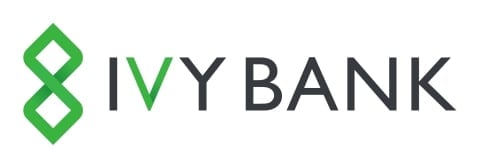Ivy Bank Review: Savings and CDs
Many or all of the products on this page are from partners who compensate us when you click to or take an action on their website, but this does not influence our evaluations or ratings. Our opinions are our own.
Overall institution rating
4.6
Ivy Bank is an online-only bank that offers savings accounts and certificates of deposit but no checking account. Its savings rates are strong and the accounts don’t charge monthly fees, but the minimum opening deposit requirements are steep. The bank is a division of Cambridge Savings Bank, which is based in Cambridge, Massachusetts. Note that California residents are not eligible to open an account at Ivy Bank.
Best for: Those who want an online savings account with a strong rate and no monthly fees, are not California residents and can meet the minimum deposit requirements to earn interest.
- Competitive rates on savings accounts and some CDs.
- No monthly fees on savings accounts.
- Extended phone customer service hours.
- High minimum opening deposit for savings accounts.
- High minimum balance to earn a strong savings rate.
- No cash deposit or withdrawal.
- No checking account offered.
Full review
Full review
Savings
Ivy Bank High-Yield Savings Account
4.8
/54.8
/5APY
4.25%
With $2,500 min. balance for APY
Bonus
N/A
APY
4.25%
With $2,500 min. balance for APY
Bonus
N/A
Ivy Bank’s High-Yield Savings Account earns a highly competitive rate. It has a minimum opening balance of $2,500, which is high compared with that of other online savings accounts with similarly competitive rates. There is no monthly fee, but you don’t want your balance to drop below $2,500. If it’s below that amount, you earn only a 0.05% annual percentage yield. If your balance goes below $10, your account won’t earn interest.
Just be sure you’re okay with an online-only account: With no ATM network available, you can’t deposit or withdraw cash. To access your money, you’ll need to set up a transfer to an external account. In addition, you can only withdraw money to a linked account that you own — don’t expect to be able to send funds to friends and family via a service such as Zelle. Ivy Bank also imposes a limit of six withdrawals per month, and international transactions are not available.
Note that if you want to open a joint account, you’ll need to say so at the time of opening. If you own the account but later want to add someone to it, you’ll need to open a new one instead (other institutions let you add joint owners to existing accounts).
» Want to see more options? Check out NerdWallet’s best high-yield online savings accounts
Certificates of deposit
Ivy Bank CD
4.0
/54.0
/51-year APY
4.00%
3-year APY
3.25%
1-year APY
4.00%
3-year APY
3.25%
5-year APY
2.60%
Minimum deposit
$1,000
Show details
Ivy Bank offers a one-year CD that has a competitive rate. The $1,000 minimum opening deposit is somewhat high compared with that of other online banks. Note that when you open a CD, you generally can’t touch the deposit until the term ends. Read more about how CDs work.
» Ready to compare? Check out the best CD rates this month
Customer experience
You can reach customer service via phone, live chat and email. Representatives are available from 9 a.m. to 6 p.m. ET Monday through Friday and from 10 a.m. to 2 p.m. ET on Saturday. You can also reach out to Ivy Bank via X (Twitter). In addition, the bank offers mobile apps that let you do basic banking activities, such as transferring money electronically and depositing mobile checks.
Ivy Bank lets you opt in to a free service to view your credit score and offers an online money management tool that lets you see all your accounts in one place — even if they are at other banks — and set budgets, track income, track spending and see your net worth.
How does Ivy Bank compare?
Up to 3.80%
Up to $300
4.10%
N/A
Methodology
NerdWallet’s overall ratings for banks and credit unions are weighted averages of several categories: checking, savings, certificates of deposit or credit union share certificates, banking experience and overdraft fees. Factors we consider, depending on the category, include rates and fees, ATM and branch access, account features and limits, user-facing technology, customer service and innovation. The stars represent ratings from poor (one star) to excellent (five stars). The ratings are incremented in tenths of a star.
